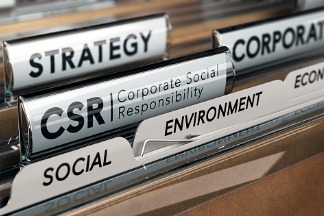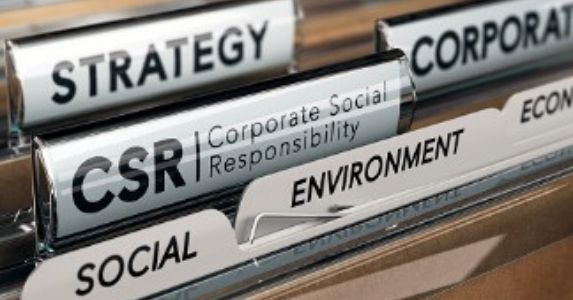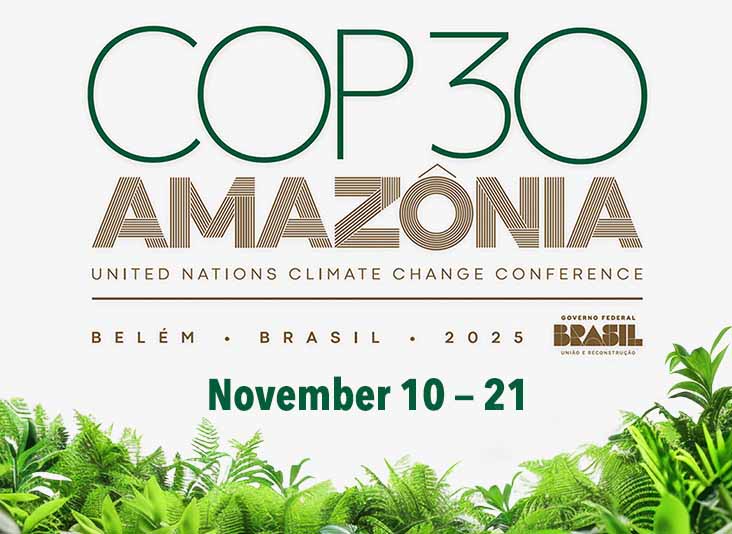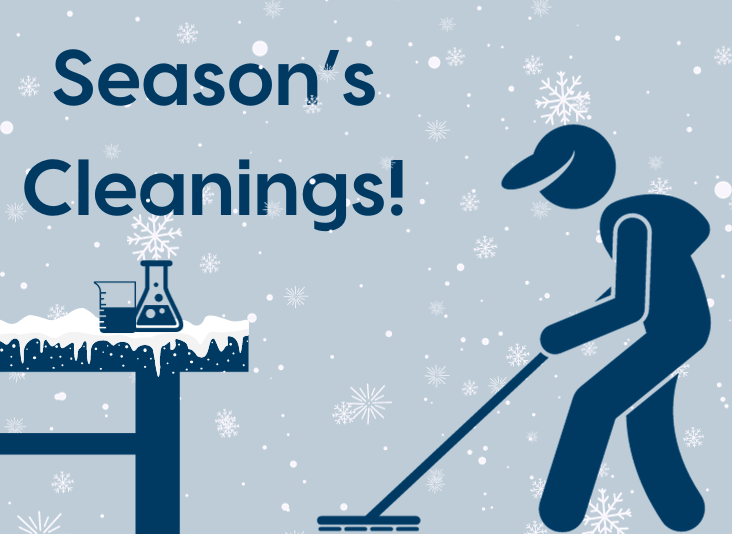How to Increase Your Organization's Corporate Social Responsibility Score
 As a leading environmental services firm, sustainability is at the forefront of our operations and core values. In 2016, Triumvirate Environmental created our first sustainability report to highlight current successful programs and evaluate different areas of the company. This report provided the building blocks for our future progress, and we have made it a priority to produce an annual report to continuously show our improvements while keeping ourselves accountable. Through our reporting each year, we are transparent with our efforts to improve our Corporate Social Responsibility (CSR) initiatives. We are excited to announce that for the past two years (2019 and 2020), Triumvirate has achieved Silver Medal status for our CSR efforts from EcoVadis, a trusted 3rd-party provider of business sustainability ratings.
As a leading environmental services firm, sustainability is at the forefront of our operations and core values. In 2016, Triumvirate Environmental created our first sustainability report to highlight current successful programs and evaluate different areas of the company. This report provided the building blocks for our future progress, and we have made it a priority to produce an annual report to continuously show our improvements while keeping ourselves accountable. Through our reporting each year, we are transparent with our efforts to improve our Corporate Social Responsibility (CSR) initiatives. We are excited to announce that for the past two years (2019 and 2020), Triumvirate has achieved Silver Medal status for our CSR efforts from EcoVadis, a trusted 3rd-party provider of business sustainability ratings.
This article provides suggested steps to improve your CSR score and maximize your efforts while streamlining the process for future success.
1. Establish a Team Dedicated to Increasing Your Organization’s CSR Score
- To form a successful team, it is important to identify individuals who not only have a passion for this type of work, but also have a broad knowledge of your company. These individuals should be able to articulate the company’s endeavors across all departments.
- The size of the team and level of effort will be contingent upon the size of the company.
- At Triumvirate: We have three dedicated individuals who meet weekly to provide status updates, discuss ideas, and divide up tasks that need to be completed.
2. Enable the Team to Collect the Necessary Data From Each Department
- First, explain the purpose behind and the importance of the sustainability report to the heads of each department so they can provide the most accurate information.
- Then schedule meetings with all the key stakeholders within each department to capture all relevant and updated information.
- Once you establish a routine, you could create a shared location to house this information, which can be continuously updated.
- At Triumvirate: Our team meets with the head of each department to gather all the necessary information needed. We have continued to refine this process each year to promote our efforts internally and expand on our reporting initiatives.
3. Determine a Set of Standards Appropriate for Your Company
- Establishing these standards not only provides uniformity across companies, but also keeps companies more organized moving forward.
- At Triumvirate: We use the Global Reporting Initiative to structure our annual Sustainability Report, which is the baseline for our CSR reporting and improving corporate sustainability.
4. Assess Where Your Company Stands in All Major CSR Categories: Environment, Ethics, Labor Practices, and Sustainable Procurement
- A diligent assessment of these four categories will establish an accurate baseline upon which your company can build.
- At Triumvirate: After we receive feedback, we outline our improvement areas in each of the four major CSR categories. We then collaborate with our Executive leadership team to discuss what is feasible for the next year and we create a plan to continue to move our corporate sustainability and CSR program forward.
5. Set Goals for Your Company and Establish a Plan to Achieve Them Over the Next Year, 2 Years, 5 Years, 10 Years, etc.
- While you are setting these goals, it is critical that these conversations involve upper management so your company will have a top-down approach.
- During these conversations, it is important to emphasize the importance of CSR initiatives and highlight the benefits for all key stakeholders. Benefits include cost savings, increased employee engagement, promotion of a positive workplace, enhanced brand awareness, and positive public image.
- At Triumvirate: This is a routine agenda item at our Bi-Annual Corporate Meetings. As an organization, we are continually finding ways to be at the forefront of corporate sustainability.
6. Implement Company-Wide Metrics and KPIs to Guide Your Organization Moving Forward
- Establish what is important to the company. Document policies and track their actual implementation in the organization.
- At Triumvirate: We have met with our sustainable procurement team to establish a corporate policy. Moving forward we want to increase visibility and metrics into our supply chain to minimize our impact.
7. Create a Sustainability Report
- This is the culmination of all the work, time, and effort to set this up. Organizing your company’s initiatives and improvement areas into one concise report allows you to celebrate the progress made so far while outlining the next steps for improvement to all key stakeholders.
- At Triumvirate: We published our first sustainability report to EcoVadis in 2018. Since then, we have committed to build upon this progress annually.
8. Provide Annual Updates to All Stakeholders
- It is imperative to document the progress on the CSR focus areas within your organization because doing so will improve company efficiencies and save resources in the long term.
- At Triumvirate: We are streamlining the distribution process of our report, so our employees and clients are aware of our status and what we are going to be focusing on for years to come.
9. Reflect on Past Years’ Reports for Strengths and Weaknesses
- Review past years’ reports to understand gaps and opportunities.
- Look at data collection processes to ensure accuracy.
- At Triumvirate: Our team is dedicated to improving our score each year. As we continue to grow as an organization, we are looking to grow our team to ensure we highlight all of our initiatives across the company.
10. Be Creative
- Each organization has different values and areas where it can improve. There is no one correct answer to improving an organization’s CSR.
- Take the time to review your company’s mission and determine what steps are required to continue moving forward.
- At Triumvirate: We are consistently looking at areas in which we can incorporate into our reporting process. This process helps us maintain accountability and aspire for change within our company and the industry.
With our main service line being waste management and disposal, our primary goal is to assist our clients with the reduction of their overall waste. We make it a priority to collaborate with each client to identify opportunities that can mitigate their impact on the environment. As a company that is on the leading edge of the recycled regulated medical waste field, we are constantly finding innovative ways to be at the forefront of corporate sustainability.
Triumvirate Environmental can bring our expertise to your company through our Environmental, Health, and Safety (EHS) Consulting services. To speak with someone from our EHS team, you can dial directly (888) 834-9697 or click the link below. Check out our other blog post that discusses the importance of CSR and how strong CSR programs can improve an organization’s reputation and image, and ultimately attract new employees, investors, and customers.






